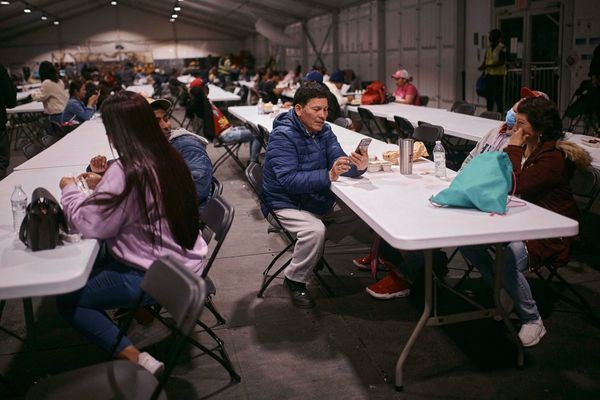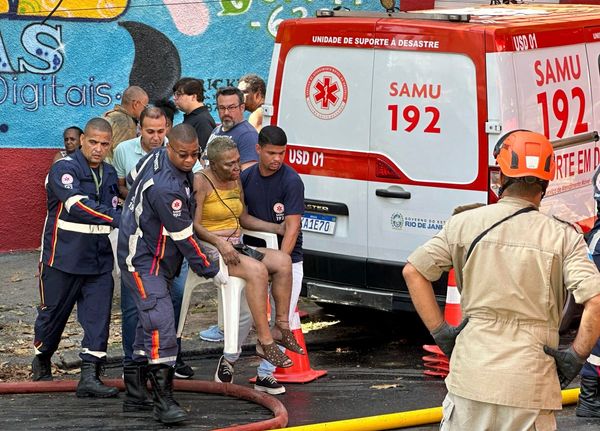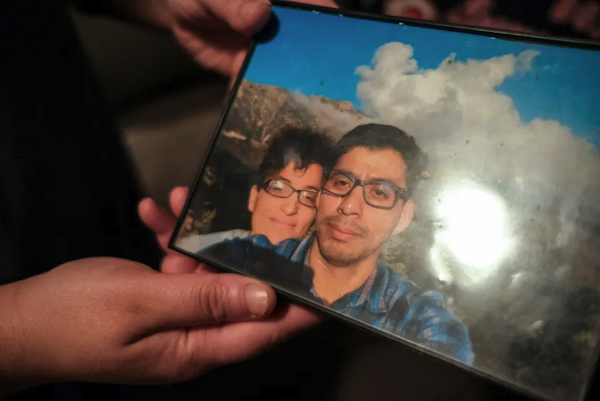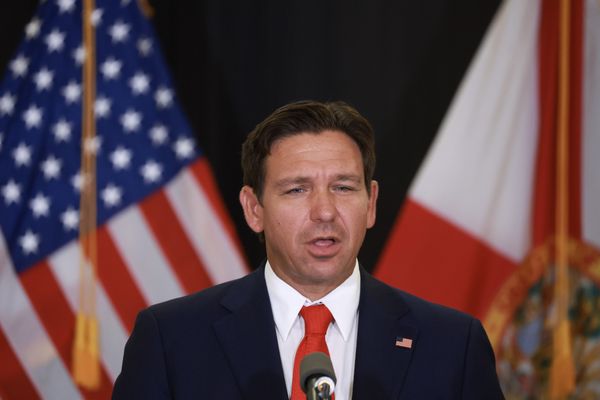Europe is bracing for what could be an exodus of more than a million refugees after Russia launched a full-scale attack on Ukraine, as officials say any initial strain will be borne by member states on the bloc’s eastern frontier.
The order of a full-scale invasion from President Vladimir Putin, triggering one of the worst security crises in Europe since World War II, has intensified preparations by eastern European Union states for an influx of refugees. Poland especially, already home to well more than a million Ukrainians, would be the first point of escape for many seeking to escape the violence.
Lines of cars already clogged highways leading out of the capital Kyiv, with the Ukrainian government saying Russian forces had entered the region around the city of 2.9 million. Polish authorities said they are beginning to see an increase in passenger traffic over the border.
Prime Minister Mateusz Morawiecki warned this month that a war could trigger an “exodus from Ukraine.” His government has already set up a coordination team and approved aide to deliver assistance in the event of a large number of arrivals.
“Poland would be primarily affected, not only due to its proximity, but the significant Ukrainian community living in the country, which could act as hosts to others at least in the early stage,” Magdalena Majkowska-Tomkin, director of migration issues for the Open Society Foundations philanthropy, said in an interview before the invasion.
But the prospect of a vast influx of migrants has forced Eastern European governments, some who have refused in recent years to accept migrants, to confront the possibility of hundreds of thousands of new arrivals. Authorities in the four EU member states bordering Ukraine — Poland, Hungary, Slovakia and Romania — say they’re prepared for those fleeing.
Prime Minister Viktor Orban, a champion of anti-immigration policies who faces a tough reelection fight in less than six weeks, also said his country would accept refugees. In recent weeks he had issued grave warnings of an influx.
“In the aftermath of today’s military attack, unfortunately we can expect an increase in the number of Ukrainian citizens arriving in Hungary who will probably request asylum,” Orban said in a Facebook video on Thursday after meeting his national security cabinet. “We’re prepared to take care of them, and we’ll be able to rise to the challenge quickly and efficiently.”
Lines of cars had already formed at Hungary’s border early Thursday, MTI state news service reported, citing witnesses. Hungary, which refused to admit mostly Middle Eastern migrants in Europe’s 2015-16 refugee crisis, could incur a scale of migration that outstrips the arrivals fleeing the Balkan wars in the 1990s, Orban warned before the invasion.
The government in Budapest, which has clashed with Kyiv over the rights of ethnic Hungarians living in Ukraine, this week shifted some troops to the frontier with Ukraine to bolster border defense and prepare for humanitarian aid.
The EU expected as many as a million refugees, though any scenario is linked to the scope of a conflict, according to officials in Brussels. Planning has consisted of taking stock of eastern members’ capacity to manage the influx, effectively relying on the contingency planning of border states.
Polish observers have speculated about far more than a million. Tomasz Hanczarek — head of Personnel Service, a company that recruits workers from abroad — put the overall number at as many as 3 million.
Germany, which absorbed the vast majority of migrants who entered Europe via Turkey and the Balkan region six years ago, said it will first offer assistance to border states shouldering the initial burden. Interior Minister Nancy Faeser said she’s in close contact with the Polish government and the European Commission, the EU’s executive arm.
“And if refugees come to our country, then those too” will be assisted, Faeser said during a visit to Vienna on Monday, according to Deutsche Presse Agentur.
Romanian authorities said Ukrainians have started to arrive, mostly on foot, at its northern border. Romanian Defense Minister Vasile Dincu said the country is able to accept about a half a million refugees. In neighboring Moldova, a non-EU state wedged between Romania and Ukraine, lines had formed, and the country’s president, Maia Sandu, called on lawmakers to issue a state of emergency.
Romania has asked its northernmost counties that border Ukraine to provide heating and electricity to existing refugee centers — though local media has questioned whether the nation has the capacity. Slovakia, which had already fleshed out plans to expand refugee shelters, dispatched 1,500 soldiers to the border.







